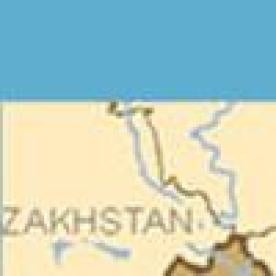On July 14, 2014, a panel of the World Trade Organization (WTO) ruled in favor of China against certain policies employed by the U.S. Department of Commerce (Commerce) in conducting countervailing duty investigations. Although this is a legal setback to the U.S. government’s policies concerning subsidies provided by China and other non-market economies, it in no way means that Commerce will alter its policies anytime soon. Instead, the U.S. government is likely to further appeal the issues it lost to the Appellate Body of the WTO. Even if it loses that appeal, Commerce is likely to formulate a new rule that accomplishes essentially the same goal that was found to run afoul of the WTO rules in the current WTO appeal.
What is a Countervailable Subsidy?
Under the countervailing duty law, subsidies provided to companies whose subject merchandise is exported to the United States are “countervailable” (that is, the subject merchandise may be subjected to offsetting tariffs upon entry for consumption into the United States) if they meet the following conditions:
-
They are specific, rather than broadly available;
-
They confer a measurable benefit (that is, a financial contribution); and
-
They are provided by a foreign governmental authority (whether local, regional, or national) or other public body.
Enterprises Owned by the Government of China Deemed Public Bodies
In recent years, Commerce has adopted a policy of treating enterprises that are majority-owned by the Chinese government (state-owned enterprises or SOE), whether directly or indirectly, as “public bodies” for the purpose of determining whether subsidies have been conveyed, absent compelling evidence that the enterprise was not acting as a public body. For example, a producer of paper who purchases wood pulp from an SOE would be presumed to have received a subsidy if that wood pulp was provided at less than adequate remuneration. The burden of proof has rested squarely on the respondent company (or, as the case may be, the government of China) to prove that the SOE was not acting as an instrument of the government, and such a burden has been difficult to overcome in practice. The direct result of this policy is an increase in the countervailing duties that importers of subject merchandise must pay with each entry of that merchandise into the United States, and thus a further disincentive to continue purchasing from that particular Chinese supplier.
According to the WTO Panel Report, however, Commerce’s rebuttable presumption that SOEs are public bodies is at odds with U.S. international obligations in the conduct of countervailing duty proceedings, and therefore the United States must take remedial steps to bring its policy in line with WTO rules.
Next Steps
The U.S. government is likely to appeal this decision to the Appellate Body of the WTO as it continues to act aggressively to counter what it perceives as unfair trade practices by China. If the U.S. government wins the appeal, it will keep the current policy in place. If the U.S. government loses its appeal, it may either change its policy (likely), or accept retaliatory tariffs on U.S. exports against a range of U.S. exports to China (highly unlikely). The most likely scenario in the event of a failed appeal is that while Commerce would no longer assumethat an SOE is a public body, any revised policy will still likely result in findings that enterprises with majority government ownership act as public bodies, and therefore that countervailable subsidies may still accrue. Such a result would be in keeping with Commerce’s recent history in other sensitive areas of trade law, such as with respect to the issue of “zeroing” in the related antidumping duty proceedings, which are also administered by Commerce. In the case of zeroing (i.e., disallowing full offsets for non-dumped sales in the mathematical calculation of dumping margins), a series of adverse WTO rulings against the practice ultimately resulted in the application of a different calculation methodology than those previously examined by the WTO, but one which ultimately has enabled Commerce to continue the practice of zeroing in many cases without directly contravening those previous WTO rulings.




 i
i


